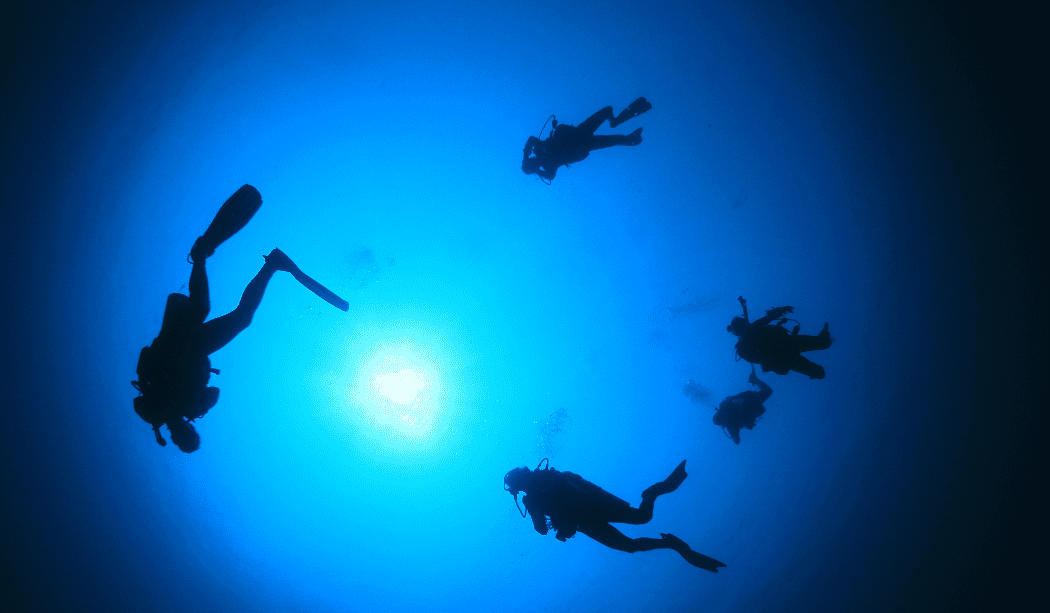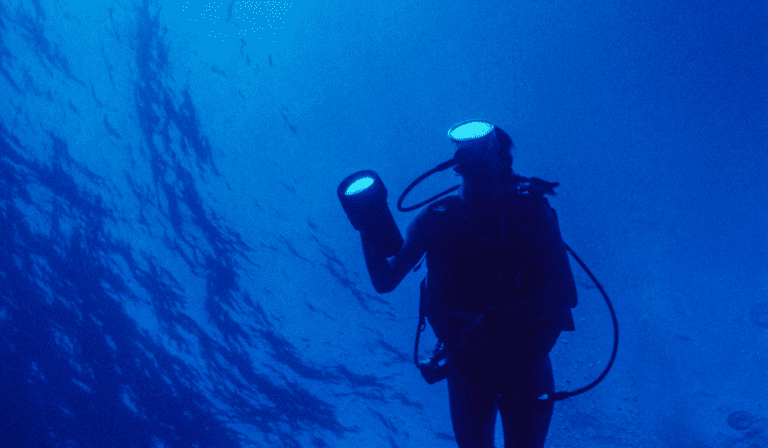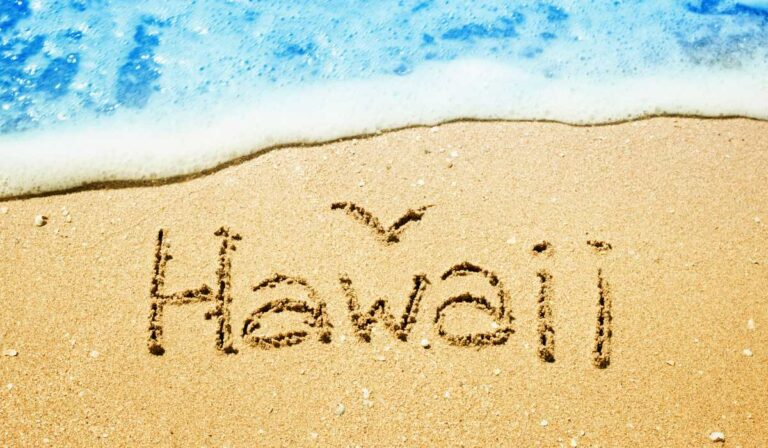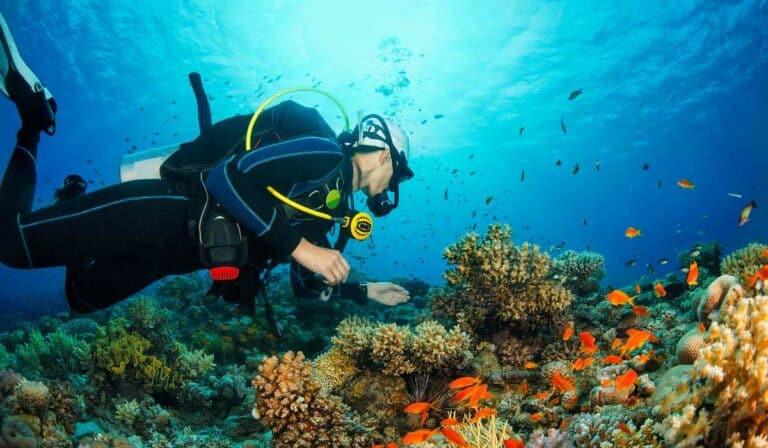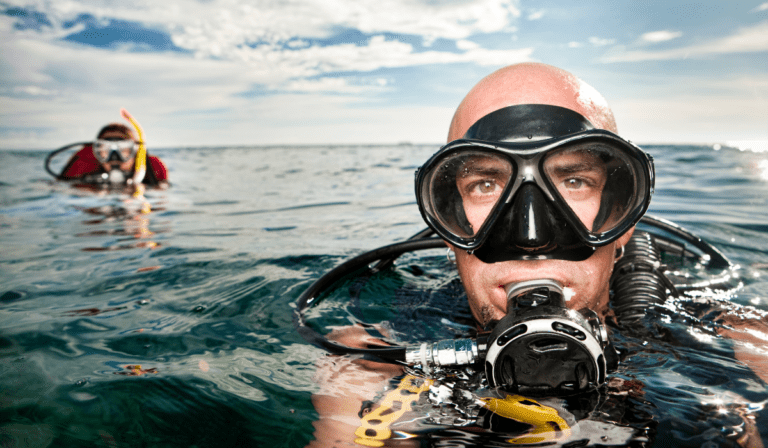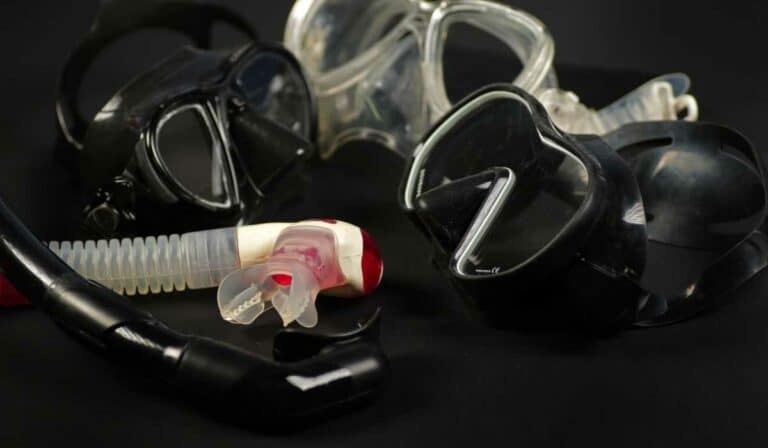Scuba Diving for Kids: An Exciting Way to Discover Nature
Scuba diving for kids provides a thrilling experience to discover the depths of the ocean, while also teaching them important lessons and fostering an admiration for aquatic life.
We’ll begin by examining age requirements for kids scuba diving, as well as potential risk factors associated with the activity. Next, we’ll delve into essential gear and accessories specifically designed for young divers. Finally, we’ll highlight some of the best locations around the globe where families can safely experience scuba diving together.
By understanding these key elements, you can ensure your child has an unforgettable and safe introduction to the captivating realm of scuba diving.
Table of Contents
1. Age Requirements for Kids Scuba Diving

Introducing your youngsters to the stimulating realm of scuba diving can be an energizing and compensating experience. However, it’s essential to understand the age requirements and restrictions before embarking on this underwater adventure with your little ones.
2. Minimum Age for Scuba Diving
The minimum age requirement for kids to participate in scuba diving varies depending on the certification agency and program type. The PADI Bubblemaker Program, designed specifically for children aged 8-9 years old, allows them to dive up to a maximum depth of 6 feet (2 meters) under direct supervision from an instructor or divemaster.
Kids aged 10-14 years old can enroll in the PADI Junior Open Water Diver course, which permits them to dive up to a depth of 40 feet (12 meters) accompanied by a certified adult diver. Once they turn 15, they can upgrade their certification level without having any additional training or exams.
Other Certification Agencies’ Age Requirements
- SSI Junior Open Water Diver: Minimum age is also set at ten years old with similar depth restrictions as PADI.
- NAUI Junior Scuba Diver: NAUI offers courses starting at ten years old but requires completion of their “Passport” program first if between ages eight and nine.
- BSAC Ocean Diver: BSAC allows children aged 12 and above to enroll in their entry-level scuba diving course.
Click here to read about Discover the 5 Best Beach Cities for Scuba Diving
3. Factors to Consider Before Enrolling Your Child

Beyond the age requirements, it’s crucial to evaluate your child’s physical fitness, maturity level, and comfort in water before enrolling them in a scuba diving course. Some factors to consider include:
- Physical Fitness: Scuba diving can be physically demanding; therefore, ensure that your child is healthy enough for this activity by consulting with a medical professional beforehand.
- Maturity Level: Assess whether your child can follow instructions well and handle potential emergency situations underwater.
- Aquatic Comfort: Make sure your kid feels comfortable swimming and being submerged underwater as they’ll need these skills while scuba diving.
Realizing the age limits for minors engaging in scuba diving is paramount to guaranteeing a secure and gratifying experience. The next heading will discuss some of the risk factors associated with kids’ scuba diving that parents should be aware of before allowing their children to participate.
Key Takeaway:
Before introducing your kids to scuba diving, it’s important to understand the age requirements and restrictions set by various certification agencies. The minimum age for scuba diving varies depending on the program type, with PADI offering programs for children as young as 8 years old under direct supervision from an instructor or divemaster. Other factors such as physical fitness, maturity level, and aquatic comfort should also be considered before enrolling your child in a scuba diving course.
4. Risk Factors of Kids Scuba Diving
Taking kids scuba diving can be an exciting and educational experience, but it’s essential to understand the potential risks associated with this activity. By being conscious of the possible dangers, one can take steps to lessen them and guarantee a secure and pleasant underwater experience for your kids.
Potential Health Risks
Scuba diving may pose certain health risks for children due to their developing bodies. For example, their ears might not equalize the pressure as effectively as adults, which could lead to ear pain or barotrauma. Because of their lower body fat, children are more prone to hypothermia than adults. Prior to diving, ensure your child is in good health and consider consulting a pediatrician if necessary.
Dive Depth Limitations
Kids should adhere strictly to depth limitations set by organizations like PADI (Professional Association of Diving Instructors). These guidelines help prevent decompression sickness or nitrogen narcosis – both potentially dangerous conditions that result from ascending too quickly or diving too deep.
- For ages 10-11: Maximum depth limit is 12 meters/40 feet when accompanied by a certified adult diver.
- For ages 12-14: Maximum depth limit is 18 meters/60 feet when accompanied by a certified adult diver.
Buddy System Importance
The buddy system plays an essential role in ensuring safety during dives; therefore, it’s crucial that kids learn how to communicate effectively with their dive partner – whether it’s another child or an adult instructor/diver. Make sure your child understands the importance of staying close to their buddy and regularly checking on each other’s well-being.
Choosing a Reputable Dive Center
Selecting a reputable dive center is critical for ensuring your child’s safety. Look for centers with experienced instructors who are certified by organizations like PADI or SSI (Scuba Schools International). These professionals will have the necessary knowledge and skills to teach children about scuba diving safely, including proper gear usage, underwater communication techniques, and emergency procedures.
Adequate Supervision
Kids require more supervision than adults during dives due to their inexperience and potential distractions. Ensure that there is always an adult present who can monitor your child closely – whether it be you as the parent or another qualified diver/instructor. This extra layer of supervision helps ensure that any issues encountered underwater are promptly addressed before they escalate into dangerous situations.
Comprehending the potential hazards involved in children’s scuba diving is essential for making an informed decision regarding its suitability for your youngster. Subsequently, we will look at the equipment and items needed for kids scuba diving to make sure that it is a secure and pleasant experience.
Key Takeaway:
It is essential to be aware of the dangers that can come with taking children scuba diving, as they may be more vulnerable to particular health risks and must adhere to depth regulations from organizations like PADI. Children may be more susceptible to certain health risks and should adhere strictly to depth limitations set by organizations like PADI. Choosing a reputable dive center with experienced instructors, practicing the buddy system, and ensuring adequate supervision are also crucial for a safe and enjoyable underwater adventure.
Click here to read about Scuba Diving Belize – Dive into a World of Adventure
5. Gear and Accessories for Kids Scuba Diving

To ensure a safe, comfortable, and enjoyable experience for children while scuba diving, the right gear, and accessories must be provided. In this section, we will discuss the necessary equipment for kids scuba diving as well as some helpful tips on choosing the appropriate items.
A. Choosing the Right Wetsuit or Drysuit
The first step in selecting proper dive gear for your child is finding a suitable wetsuit or drysuit that fits them snugly without being too tight. A good fit ensures better insulation against cold water temperatures and prevents chafing during dives. When shopping for a wetsuit or drysuit, consider factors such as thickness (measured in millimeters), material type (neoprene vs. trilaminate), and whether it’s designed specifically for children.
B. Fitting Masks, Snorkels, and Fins
Masks are crucial to provide clear vision underwater; therefore, they should fit comfortably around your child’s face without any gaps where water can seep in. Make sure to choose masks made from high-quality silicone materials that offer flexibility while maintaining durability over time.
Snorkels come in various styles but opt for one with a purge valve at its base which makes it easier to clear out any accumulated water inside.
Fins should be comfortable yet efficient when kicking through the water – look into adjustable straps so they can grow along with your kid’s feet size changes over time.
Care Tip:
- Always rinse all gear thoroughly after each use using fresh tap water – this helps prolong their lifespan by removing salt, chlorine, and other contaminants.
C. Safety Equipment for Kids Scuba Diving
When it comes to safety equipment, a few essential items include:
- Buoyancy Control Device (BCD): A child-specific BCD is necessary to help your kid maintain neutral buoyancy underwater. Make sure the BCD fits snugly and securely around the torso while providing ample room for movement.
- Regulator Set: Choose a regulator set designed specifically for kids or one with an adjustable mouthpiece that can be customized to fit smaller mouths comfortably.
- Dive Computer: Invest in a reliable dive computer that will monitor depth, time spent underwater, and remaining air supply – this helps ensure safe diving practices are followed at all times.
- Safety Accessories: Equip your child with additional safety accessories such as surface marker buoys (SMBs), whistles or horns, and reflective tapes on gear – these make them more visible both above and below water surfaces during dives.
In addition to purchasing high-quality gear from reputable brands like Scubapro, consider enrolling your child in scuba diving courses offered by certified organizations like PADI (Bubblemaker Program) or SSI (Try Scuba Pool program for ages 8-12 years old). These programs provide hands-on training on using equipment safely while teaching valuable diving skills and knowledge.
Having the right gear and accessories for kids scuba diving is essential to ensuring a safe and enjoyable experience. Let’s check out some of the top spots worldwide where youngsters can have a blast scuba diving.
Click here to read about 5 Best Places for Scuba Diving in Europe
Key Takeaway:
To ensure safety, comfort, and enjoyment while scuba diving for kids, equipping them with the right gear and accessories is essential. This includes a well-fitted wetsuit or drysuit, comfortable masks, snorkels, and fins as well as necessary safety equipment such as buoyancy control devices (BCD), regulator sets, and dive computers.
6. Best Locations for Kids Scuba Diving
When it comes to introducing your kids to the underwater world, choosing the right location is crucial. The best spots for kids scuba diving should have calm waters, shallow depths, and an abundance of marine life to keep them engaged and excited about their experience. Here are some top locations around the world that cater specifically to young divers:
A. Bonaire, Caribbean
Bonaire is known as one of the best destinations in the Caribbean for scuba diving due to its clear waters and vibrant coral reefs teeming with diverse marine life. With over 80 dive sites accessible from shore or by boat, there are plenty of opportunities for children aged 10 and above to explore this underwater paradise.
B. Great Barrier Reef, Australia
The Great Barrier Reef, located off Queensland’s coast in northeastern Australia, offers a variety of kid-friendly dive sites suitable for beginners through advanced divers alike. Many operators offer programs tailored specifically towards children who want a safe introduction to scuba diving while exploring this natural wonder.
C. Florida Keys National Marine Sanctuary, USA
The Florida Keys National Marine Sanctuary provides an ideal environment for kids learning how to scuba dive thanks to its warm water temperatures year-round and abundant sea life, including colorful fish species like parrotfishes or angelfishes swimming among stunning coral formations.
- Dolphin Cove: This shallow dive site, located in Key Largo, is perfect for young divers who want to interact with friendly dolphins.
- Christ of the Abyss: A popular underwater statue surrounded by various marine life, this spot offers a unique experience for kids diving at John Pennekamp Coral Reef State Park.
D. Red Sea, Egypt
The Red Sea’s crystal-clear waters and an array of coral reefs and fish species make it an excellent spot for a family scuba diving holiday. Some resorts even offer special courses designed specifically for children aged 8 years or older:
- Ras Mohammed National Park: This protected area near Sharm El Sheikh features shallow dive sites suitable for beginners as well as more advanced dives around its famous Shark Reef.
- Hurghada: With numerous dive centers catering to families and beginner divers alike, Hurghada provides plenty of opportunities to explore vibrant coral gardens teeming with marine life.
In addition to these locations, always research local operators offering specialized programs tailored towards children’s needs when planning your family scuba diving adventure. Remember that safety should be your top priority – choose reputable companies with experienced instructors who prioritize teaching kids proper techniques while ensuring they have fun exploring the underwater world.
Click here to read about Scuba diving in Australia: Top Spots, Tips & Marine Life
Key Takeaway:
Choosing the right location is crucial when introducing kids to scuba diving. Bonaire, Great Barrier Reef, the Florida Keys National Marine Sanctuary, and the Red Sea are some of the best locations for kid-friendly dives with calm waters, shallow depths, and an abundance of marine life. Always prioritize safety by choosing reputable companies with experienced instructors who teach proper techniques while ensuring a fun experience exploring the underwater world.
FAQs about Scuba Diving for Kids
What is Scuba Diving Explained for Kids?
Scuba diving is an exciting underwater activity where people wear special equipment, such as a mask, fins, and a tank of air called a “scuba,” to breathe and explore the ocean. It’s a fun way to discover the underwater world, including sea creatures, coral reefs, and shipwrecks while swimming in the water.
Is Scuba Diving Safe for Kids?
Yes, scuba diving can be safe and enjoyable for kids if they meet the minimum age requirements (usually 10 years old) and have proper training from certified instructors. Parents should also consider their child’s comfort level with water activities before starting scuba lessons.
What are the 5 Most Important Rules of Scuba Diving?
1. Breathe Continuously: Never hold your breath while diving.
2. Equalize Pressure: Clear your ears regularly during descent to avoid discomfort or injury.
3. Maintain Buoyancy Control: Use your BCD (buoyancy control device) properly to stay at desired depths.
4. Dive Within Limits: Follow depth limits set by certification levels and always dive with a buddy.
5. Avoid Decompression Sickness: Ascend slowly from dives (no faster than 30 feet per minute) and perform safety stops when needed.
What are Some Fun Facts About Scuba Diving?
1. The word “SCUBA” stands for Self-Contained Underwater Breathing Apparatus.
2. Oceans cover more than 70% of Earth’s surface, providing endless opportunities for exploration.
3. Scuba diving can improve physical fitness, and mental well-being, and help develop problem-solving skills.
4. The world’s deepest scuba dive was recorded at a depth of 1,090 feet (332 meters) in the Red Sea by Ahmed Gabr in 2014.
Scuba diving is a great way for kids to explore the underwater world and learn about marine life. At SunWaterDirt.com, we offer scuba diving lessons for kids and adults with certified instructors. Contact us to learn more about our scuba diving programs.
Conclusion
Scuba diving can be a thrilling and educational experience for kids. Still, it’s vital to consider age limitations and potential hazards before allowing kids to dive. Scuba diving can be a fun and secure activity for all ages, with the correct equipment and accessories.
For those seeking an exciting scuba diving destination for their children, there are a variety of vibrant coral reefs and historical shipwrecks to explore. From colorful coral reefs to shipwrecks full of history, there’s something for every young explorer.

